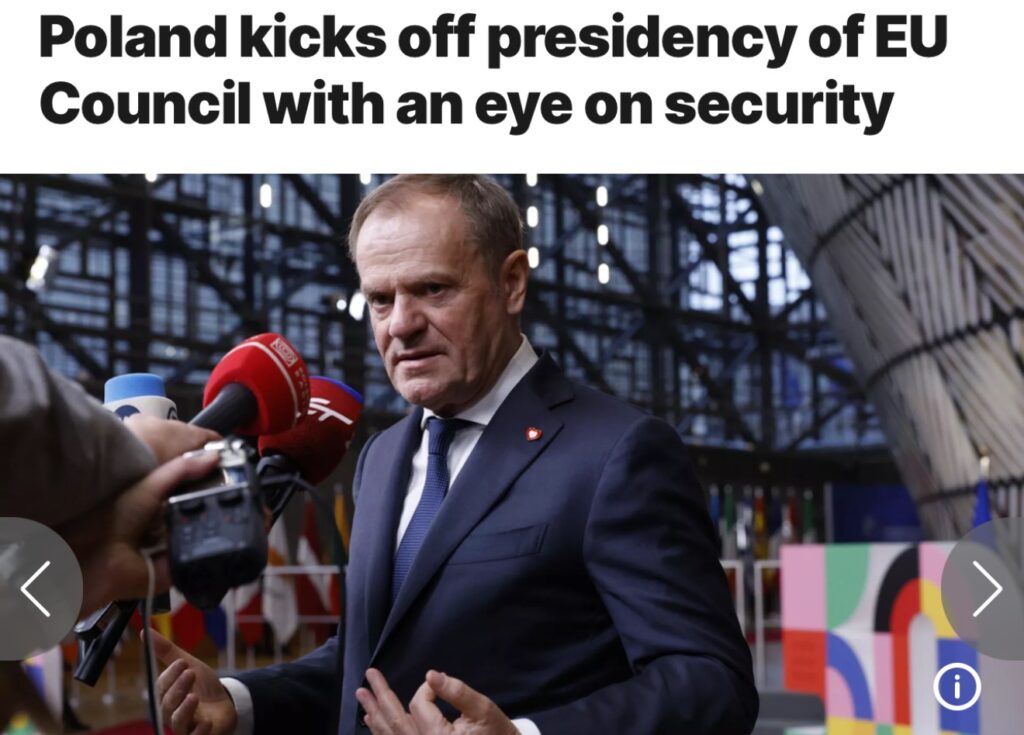Poland kicks off presidency of EU Council with an eye on security
Poland has taken over the presidency of the Council of the European Union for six months, following Hungary’s controversial tenure.

Under the slogan “Security, Europe!”, Poland is taking over the presidency of the Council of the European Union, marking the start of a six-month rotation for the second time in Poland’s history.
The country in presidency is tasked with guiding the council’s work and representing all member states in negotiations with other EU institutions. The spot rotates among the EU’s 27 member states every six months, with Hungary wrapping up its controversial tenure in December.
Marked by the ongoing war in neighbouring Ukraine and escalating tensions at the Polish-Belarusian border — which Prime Minister Donald Tusk has called an example of “hybrid warfare” — th
During the EU Presidency, Poland also plans to host over 300 official meetings, 22 informal councils of EU ministers, and about 200 cultural events.
President of the European Commission Ursula von Der Leyen welcomed Poland’s presidency with a statement on X: “We are going to launch many important initiatives in the first half of 2025. “
“I’m grateful to have Poland’s determination and European spirit by our side,” she added.
Made up of all heads of state and government of EU member states, the European Council sets the agenda and priorities of the EU, and debates legislation proposed by the EU Commission.
“We are prepared to take over the presidency,” Adam Szłapka, the Minister for European Union Affairs, said in a press conference in December, “but for us it’s also important that Europe speaks our language and notices what’s most important.”
“Nothing is more important today than taking responsibility for our joint security,” he added.
The Polish presidency follows a controversial Hungarian one. Hungarian Prime Minister Viktor Orbán used his presidency to repeatedly block EU sanctions against Russia amid the war in Ukraine, and tout his controversial “peace mission” for ending the war.
null
Poland’s rise to the forefront of the European Union also comes at critical point in the country’s domestic politics The rotation is just over a year after the ousting of Poland’s national-conservative Law and Justice government, and only a few months before presidential elections — which many see as a test for Tusk’s Civic Coalition party.
Poland, under the Law and Justice government, was once outlier to what were viewed as shared European values and common interests. The country faced fines and withheld funds for sparring with EU leadership on issues such as LGBTQ+ rights and migration, and for controversial judicial reforms that the EU deemed democratic backsliding.
“We have taken full responsibility for what is happening and will happen in Poland in the coming years,” Tusk, who is decisively more pro-EU than his predecessor, said in a statement given upon Poland’s taking of the presidency.
“What we inherited implores us to make difficult decisions.”
Source:EuroNews
You must be logged in to post a comment.